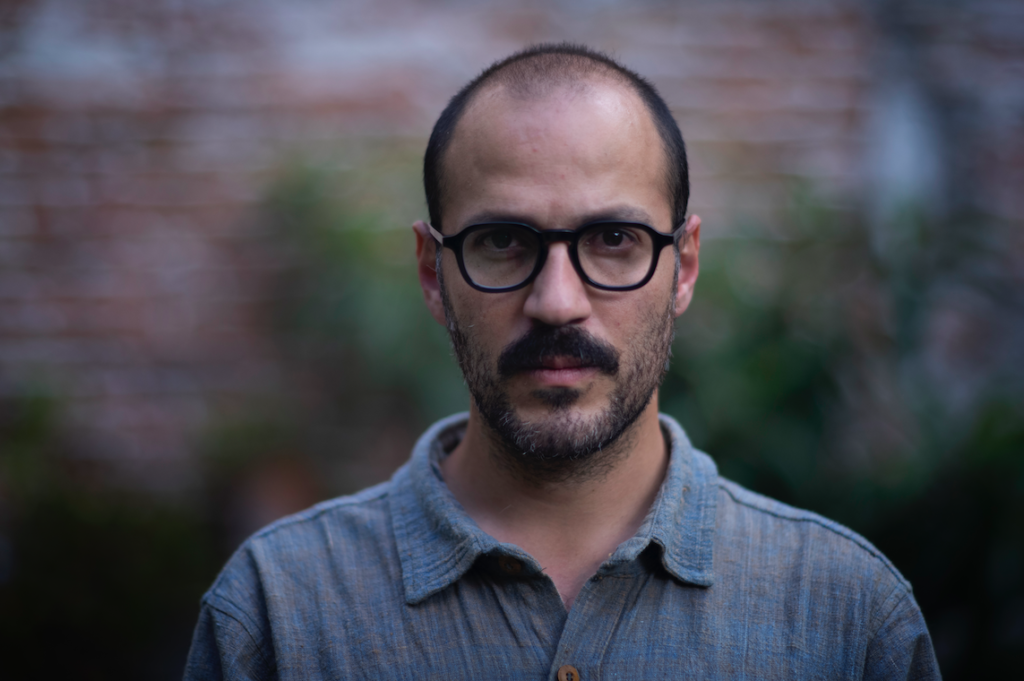INTERVIEW: Sundance winner ‘Dos Estaciones’ opens in NYC
Photo: María Sánchez stars in Dos Estaciones, a new film by Juan Pablo González. Photo courtesy of Cinema Guild / Provided by Cinema Tropical with permission.
Filmmaker Juan Pablo González has been on a long journey with his latest film, Dos Estaciones, which is finally receiving a distribution release in United States theaters. The drama, starring Teresa Sánchez, is now playing at the IFC Center in New York City, with future engagements in Los Angeles, San Diego, Chicago, Seattle and other markets planned. The movie comes to the U.S. courtesy of Cinema Guild.
The film, which González wrote and directed, tells the story of María García (Sánchez), the owner of a struggling tequila company in the Jalisco Highlands of Mexico, according to press notes. With her economic prospects dwindling, she finds herself facing an uncertain future and perhaps being forced to sell her family-owned company to a global conglomerate, much like the fate of other tequila businesses in the local area. Her only saving grace is the new hire of Rafaela (newcomer Rafaela Fuentes), who has some ideas about how to keep the company going, and eventually she and María share more than professional interests.
“It’s interesting because we started writing around the summer of 2017, but I had been thinking a lot about this character of María,” González said in a recent Zoom interview. “It was around 2013-2014 the factory that we shot in was in a really big crisis, and I started thinking of making a film around a character like this. But it took me quite a bit to actually decide to sit and write. … We shot some things before we started writing. Like, we did some improvisation scenes with Teresa and Rafaela, and that propelled the writing. And we continued that process for about three or four years until we shot the film in 2020.”
Although the narrative focuses on two women heading this tequila industry, González and his team are clearly interested in offering some commentary on larger economic themes. “I think it is a commentary or reflection on how these rural spaces are changing because they’ve been incorporated into this globalized market, and it doesn’t just happen in this region, but in the whole world,” he said. “Thinking about the character of María, to me, she’s really interesting. I know quite a few people like her. It’s a generation of men and women who were born in the ‘50s and ‘60s, and they were the link between the really old tradition of tequila, their parents who were maybe born at the beginning of the 20th century, or even at the end of the 19th century. I feel that they are the transitional link between that world and the hyper-globalized world and [today’s] market. Because they have their years of formation in the ‘70s or ‘80s, and because they’re all from this very rural region, they still believe in tradition and really believe in the old ways of working, of doing things. They believe in the figure of the boss that kind of manages and does everything.”
The 1990s, however, changed the landscape. With the signing of the North American Free Trade Agreement, or NAFTA, markets changed, and Mexican companies found themselves inserted into the globalized economy. “It’s all about efficiency, and I feel like that really represents what María is, this link between tradition and modernity, not just modernity in the abstract, but this very particular insertion into this globalized market of the tequila industry that happened, especially in the ‘90s,” said González, who is making his fictional feature-length debut with Dos Estaciones. “It acknowledges that actually the industry has been propelled along by women. … There’s all this history actually that has been, I don’t want to say erased, but maybe not properly acknowledged or told about the seminal role or the really, really important role of women in the tequila industry.”
Helping bring González’s vision to life is the central performance by Sánchez, a towering performer, who the director called the best living Mexican actor. He said that Sánchez is giving, generous and wonderful to work with on set. And her dedication paid off. Sánchez was selected by the Sundance Film Festival for a Special Jury Award for Acting.
The actor took to the story and the character like a student studying for an exam. She’s not originally from the Jalisco Highlands (most of the cast are and so is González), so she needed to complete her homework.
“She would come once or twice a year when we were preparing for the film to this place, to the factory, to the region, and we would have a lot of conversations and rehearsals, moments where she would perform María,” the director said. “And we would be thinking about how does she move, how does she walk, how does she speak. That was the preparation for her character of María, but also Tere she has this really incredible ability to work with non-trained actors. She’s an incredibly present actor, so she’s always reacting to the moment. A lot of our dialogue was changing from take to take, and she would be great at reacting to those spontaneous moments and really guiding actually the other actors’ performances. She was also a director in that sense.”
By John Soltes / Publisher / John@HollywoodSoapbox.com
Dos Estaciones, written and directed by Juan Pablo González, is now playing at the IFC Center in New York City. The film will soon open on the West Coast and other markets around the United States. Click here for more information and tickets.


